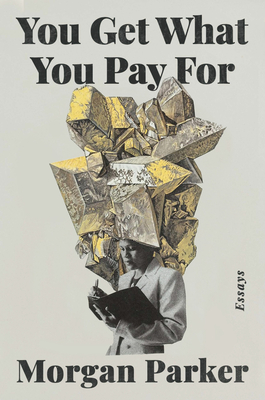You Get What You Pay for: Essays
Description of You Get What You Pay for: Essays
The award-winning author of Magical Negro traces the difficulty and beauty of existing as a Black woman through American history, from the foundational trauma of the slave trade all the way up to Serena Williams and the aftermath of Hurricane Katrina.
“An engrossing journey through Parker’s expansive and gifted mind.”—Clint Smith, author of How the Word Is Passed
Dubbed a voice of her generation, poet and writer Morgan Parker has spent much of her adulthood in therapy, trying to square the resonance of her writing with the alienation she feels in nearly every aspect of life, from her lifelong singleness to a battle with depression. She traces this loneliness to an inability to feel truly safe with others and a historic hyperawareness stemming from the effects of slavery.
In a collection of essays as intimate as being in the room with Parker and her therapist, Parker examines America’s cultural history and relationship to Black Americans through the ages. She touches on such topics as the ubiquity of beauty standards that exclude Black women, the implications of Bill Cosby’s fall from grace in a culture predicated on acceptance through respectability, and the pitfalls of visibility as seen through the mischaracterizations of Serena Williams as alternately iconic and too ambitious.
With piercing wit and incisive observations, You Get What You Pay For is ultimately a portal into a deeper examination of racial consciousness and its effects on mental well-being in America today. Weaving unflinching criticism with intimate anecdotes, this devastating memoir-in-essays paints a portrait of one Black woman’s psyche—and of the writer’s search to both tell the truth and deconstruct it.
You Get What You Pay for: Essays is categorized under the following categories. You can browse these categories to find other titles filed in the same way:

